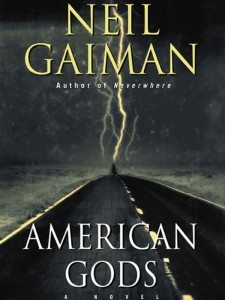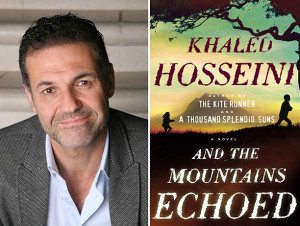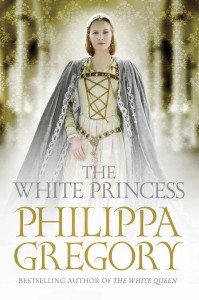What We’re Reading This Easter
Bringing Up the Bodies by Hilary Mantel
 My copy of Hilary Mantel’s Bring up the Bodies had been sitting untouched on my bookshelf for a while. With the stresses of university life, I hadn’t had time to dip into it. However, with five and a half weeks of the Easter vacation lying before me, I have decided to treat myself and read a non-course book – as an English Literature student, this is certainly a bit of a luxury!
My copy of Hilary Mantel’s Bring up the Bodies had been sitting untouched on my bookshelf for a while. With the stresses of university life, I hadn’t had time to dip into it. However, with five and a half weeks of the Easter vacation lying before me, I have decided to treat myself and read a non-course book – as an English Literature student, this is certainly a bit of a luxury!
Mantel’s Bring up the Bodies has won many awards including the 2012 Man Booker Prize and the 2012 Costa Book of the Year. It certainly has a high reputation. Has it fulfilled its expectations? So far, I think so. It has been a highly entertaining read that offers a unique portrayal of the rise and fall of Thomas Cromwell in the court of Henry VIII. The novel follows Thomas Cromwell as he accompanies the King to the residence of the Seymour family, Wolf Hall. We witness Henry growing tired of Anne Boleyn, who has failed to give him an heir, and single out the young Jane Seymour as a possible replacement.
My only issue with the book has been that Mantel likes her third person pronoun ‘he’ a little too much, and does not always make clear who is speaking. On a few occasions, I have been left a little confused. This does not, however, detract from my overall enjoyment.
Despite knowing my Tudor history, the novel felt fresh and exciting. I found myself desperate to find out what was to unfold and unravel next. A strong point of the novel is, without doubt, the characterisation of the historical figures that we thought we knew so well. They are shown in a completely original, more human light. Thomas Cromwell is no longer merely Henry’s scheming right-hand man. Rather, he is also a humble and feeling man who is still haunted by the death of his wife and daughters.
We are not shown the King Henry that is portrayed in paintings. One of the first descriptions we are given of his physical appearance is in the relatively comical scene where he falls asleep after dinner and his companions discuss how they should arouse the overweight and pathetic middle-aged man.
I am thoroughly enjoying Mantel’s Bring up the Bodies and cannot seem to be able to put it down! If you fancy escaping from the dull reality of ordinary life, pick up Mantel’s novel and lose yourself in Tudor England.
Sandeep Purewal
[divider]
American Gods by Neil Gaiman
 There is nothing as powerful in the world as belief. Belief in a higher power, or in scientific rationale, in the human condition or the Easter Bunny – so long as there is an unshakable certainty possessed by a single human being, an idea cannot disappear. But what happens to these established ideas when conviction begins to waver, or worse, come to a grinding halt? This is the question that drives the plot of American Gods.
There is nothing as powerful in the world as belief. Belief in a higher power, or in scientific rationale, in the human condition or the Easter Bunny – so long as there is an unshakable certainty possessed by a single human being, an idea cannot disappear. But what happens to these established ideas when conviction begins to waver, or worse, come to a grinding halt? This is the question that drives the plot of American Gods.
Neil Gaiman’s masterpiece centres on the unusual life of Shadow. Released from prison on the day of his wife’s death, Shadow has a chance encounter with the enigmatic Mr Wednesday on his flight back home. Claiming to be a refugee from a distant war, a former god and the King of America, Wednesday offers Shadow employment, which he accepts despite his better judgement. Together, they embark on a long journey across the USA and become embroiled in a clash of epic proportions between the old gods and the new.
Having read Stardust and Fragile Things before picking up probably his most famous novel, I was already a huge fan of Gaiman. His approach to fantasy is refreshingly – and strangely – grounded. It is a gritty, almost dirty antithesis to the splendour of Tolkien or the wonder of Rowling. Gaiman delves into his characters’ deepest fears, their physical desires and their emotional traumas in a way that makes you wonder if there is really a thing as “fantasy” or if it is just heightened reality.
Even knowing his style, however, could not prepare me for the sheer scale of American Gods. At 635 pages long, it is not what you would call a quick read. The novel is packed with detail, but calling it heavy would do it a disservice. Lush might be a more appropriate descriptor as Gaiman touches on everything from Norse mythology and Arabic folklore to Creole legends and ancient Indian customs. Shadow is a brilliant protagonist because he simultaneously has a distinct personality and history while also being new to the supernatural world he is thrown into, making him both an interesting character to read and a relatable guide for readers.
Suffice to say, I am a fan and I wholeheartedly recommend adding this to your bookshelf or Kindle. It is engrossing, extremely well-written and quite possibly the best fantasy novel I have ever read. Just don’t attempt to read it when you have a deadline coming up; it will take up too much of your attention!
Ibtisam Ahmed
[divider]
And the Mountains Echoed by Khaled Hosseini
And the praises echoed…
 Choosing to read And the Mountains Echoed this Easter was not a clever move. Instead of making a revision timetable, planning and writing my essay or unpacking my stuff from university I have been an anti-social monster, racing through the novel in three nights. After studying The Kite Runner for A-Level and greatly enjoying A Thousand Splendid Suns, I was more than inclined to devour Hosseini’s latest masterpiece. Critics had raved about the master storyteller making his return and the praises had echoed from friends and family alike. Therefore it was an absolute must-read for me and I have definitely not been disappointed. The story is set, once again, in Afghanistan but also spans the globe and explores Paris, San Francisco and the Greek island of Tinos. This means that there is a dash of familiarity but also new and intriguing story lines set against different backdrops and cultures.
Choosing to read And the Mountains Echoed this Easter was not a clever move. Instead of making a revision timetable, planning and writing my essay or unpacking my stuff from university I have been an anti-social monster, racing through the novel in three nights. After studying The Kite Runner for A-Level and greatly enjoying A Thousand Splendid Suns, I was more than inclined to devour Hosseini’s latest masterpiece. Critics had raved about the master storyteller making his return and the praises had echoed from friends and family alike. Therefore it was an absolute must-read for me and I have definitely not been disappointed. The story is set, once again, in Afghanistan but also spans the globe and explores Paris, San Francisco and the Greek island of Tinos. This means that there is a dash of familiarity but also new and intriguing story lines set against different backdrops and cultures.
The novel begins in an Afghan village in the early 1950s with a father telling an emotional story to his children: a child is stolen away by a monster and when his father finds him he finds his son living happily with the monster in a palace, thus requiring the father to decide if leaving his son there will allow him to have a better life. The myth has parallels to the novel and immediately emotionally draws you in to the story of the main characters.
Following this, the narrative voices switch and the novel is woven together as interconnected stories, somewhat reminiscent of Love Actually (although this is the only way these two are similar). Whilst it provides variety and allows the reader to piece together the story by understanding how each character is directly or indirectly related, the change in narrative does cause anti-climaxes at times when you desperately want to continue with the story of a particular character but instead are faced with another. This creates a sometimes jarring and disconnected manner of storytelling. It seems to be Hosseini’s way of responding to critics who commented his previous works were too contrived (particularly the endings), but perhaps I’m just a sucker for a more conventional narrative.
Although the structure of the novel does not greatly appeal to me, the range of characters, their complexities and the emotional resonance created means that Hosseini remains, as ever, a truly masterful writer. Transporting you into the lives of these characters, into quaint coffee shops in Paris and impoverished villages in Afghanistan, it is most certainly a novel worth reading and leaves you satisfied but also eagerly waiting for Hosseini’s next work.
Karishma Jobanputra
[divider]
The White Princess by Philippa Gregory
 I’ve been desperate to discard the dry nineteenth century tomes I’m revising for exams and pick up Philippa Gregory’s latest novel, The White Princess. I adore the Cousin’s War series, which portrays the War of the Roses from the perspectives of different women of the period, so couldn’t wait to get my hands on the latest installment.
I’ve been desperate to discard the dry nineteenth century tomes I’m revising for exams and pick up Philippa Gregory’s latest novel, The White Princess. I adore the Cousin’s War series, which portrays the War of the Roses from the perspectives of different women of the period, so couldn’t wait to get my hands on the latest installment.
This book tells the story of Elizabeth of York, daughter of Edward IV and Elizabeth Woodville, charting her marriage to Henry VII and the birth of the Tudor dynasty. Unfortunately the previous instalment in the series, The Kingmaker’s Daughter, made me fall completely in love with Richard III (this was only compounded by the dreamy smoulder of Aneurin Banard in the BBC TV adaptation). Thus I fear I will never really be able to sympathise with his opponent Henry Tudor. However, it still makes an interesting read to see how a man who was raised in exile and denounced as a pretender adapts to the royal lifestyle when he is finally able to take the throne.
The White Princess promises war, schemes, plots, power struggles, passion and not a little intrigue. After the Battle of Bosworth, Henry decides to take Elizabeth as his bride, uniting of the warring houses of York and Lancaster in an attempt to prevent more bloodshed. But this is far from a fairy tale marriage of true love. Elizabeth’s loyalty is with the deceased Richard and the Yorks, meaning that Henry has an understandably hard time trusting her. Elizabeth and Henry gradually bond over their children and shared political interests, and I felt that the dynamic of attraction and mistrust between them was one of the most successful elements of the book.
Elizabeth herself isn’t the most interesting protagonist of the Cousin’s War series. During the first part of the novel she is a petulant teenager, and I admit I found her constant whining somewhat grating. She comes into her own more once Henry’s reign goes sour, and gives her husband and his mother some sensible and much-needed advice about diplomacy (which they mostly ignore). I have to admit that my favourite character is actually Margaret Beaufort, mother-in-law from Hell, who does her best to make Elizabeth feel inferior and unwelcome. There is something equally entertaining and pathetic about her attempts to smother her son and prevent Elizabeth from gaining power at court.
Although it’s not the strongest instalment in the Cousin’s War series, The White Princess is still well worth a read. It is an outstanding portrait of a nation in turmoil, and the women who must navigate the politics and power struggles with only their wits and charms to help them. As the novel says, “Fortune’s wheel takes you very high and then throws you very low, and there is nothing you can do but face the turn of it with courage.”
Emily Nabney
[divider]
 What books are you reading this Easter? Let us know @BoarBooks.
What books are you reading this Easter? Let us know @BoarBooks.
[divider]

Comments